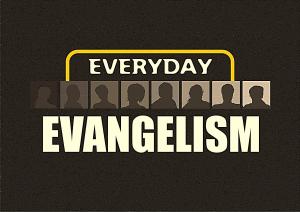When Asking Beats Telling – Everyday Evangelism
 Trained as a rabbi, Paul was taught to think about God and life through a style of debate still used today in Jewish training schools called “yeshivas.”
Trained as a rabbi, Paul was taught to think about God and life through a style of debate still used today in Jewish training schools called “yeshivas.”
This “pulpil” method responds to questions with other questions. Acts 17 is the chapter that most fully describes how Paul engaged in the give-and-take of “rabbinic evangelism” in synagogues, and then exported it to Gentile communities.
Interact with God’s Word
- What verbs (vv. 2-3) describe how Paul functioned during his synagogue visits?
- Does this sound to you more like a sermon or a Q and A session?
- What points do you think prompted the most lively discussions in Thessalonica?
- Which issues today need the most debate?
- What kind of responses (vv. 4-5) did the interactions with Paul produce?
- How and with whom did Paul interact in Athens (vv. 17-18)?
- What kinds of reaction were there to Paul’s discussion with the Council of Philosophers?
Spend Time in Prayer: Ask God for a growing confidence in the gospel that will allow you to casually engage in give and take about it.
1 Now Paul and Silas traveled through the towns of Amphipolis and Apollonia and came to Thessalonica, where there was a Jewish synagogue. 2 As was Paul’s custom, he went to the synagogue service, and for three Sabbaths in a row he interpreted the Scriptures to the people. 3 He was explaining and proving the prophecies about the sufferings of the Messiah and his rising from the dead. He said, “This Jesus I’m telling you about is the Messiah.”4 Some who listened were persuaded and became converts, including a large number of godly Greek men and also many important women of the city. 5 But the Jewish leaders were jealous, so they gathered some worthless fellows from the streets to form a mob and start a riot. They attacked the home of Jason, searching for Paul and Silas so they could drag them out to the crowd.
16 While Paul was waiting for them in Athens, he was deeply troubled by all the idols he saw everywhere in the city. 17 He went to the synagogue to debate with the Jews and the God-fearing Gentiles, and he spoke daily in the public square to all who happened to be there. 18 He also had a debate with some of the Epicurean and Stoic philosophers. When he told them about Jesus and his resurrection, they said, “This babbler has picked up some strange ideas.” Others said, “He’s pushing some foreign religion.” 19 Then they took him to the Council of Philosophers.[a] “Come and tell us more about this new religion,” they said. 20 “You are saying some rather startling things, and we want to know what it’s all about.”
32 When they heard Paul speak of the resurrection of a person who had been dead, some laughed, but others said, “We want to hear more about this later.”33 That ended Paul’s discussion with them,34 but some joined him and became believers. Among them were Dionysius, a member of the Council, a woman named Damaris, and others.


